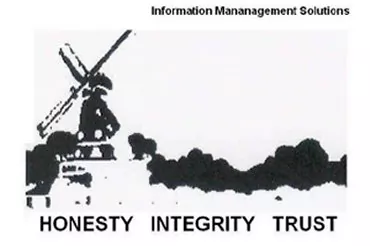Quietly, ever so, quietly, yet another flag is carefully lowered forever in yet another far flung corner of Her Majesty's former Empire. This time, it is Antigua & Barbuda.
On 30 June 2008 the British High Commission in Antigua will close forever in recognition of the Island's loss of international value.
As with Barclays Bank Plc that skilfully removed its brand from reputational risk in 2006 by the sale of its branches to CIBC under the formation of First Caribbean International Bank, this is another sign that Antigua no longer commands respect.
The small Island of Antigua & Barbuda fought for and gained independence in 1981. In less than thirty years it has achieved greatness. It has become one of the few counties to have developed the highest per capita debt of any country in the world, has proven links to organised crime and appears on the list of the world's most un-cooperative jurisdictions.
In recent years, it has achieved the ultimate accolade of rogue state notoriety by succeeding in the expropriation of foreign-owned private property. Expropriation is land grabbing without proper compensation in a reasonable period of time.
In the case against the improper registration of expropriated land in a favour of the Government instead of the Crown, High Court Judge David C Harris highlighted the important difference between expropriation and forced acquisition to the Attorney General. AG Justin Simon Q.C. represented the Government of Antigua & Barbuda in the case and continues to spearhead the expropriation.
Antigua had already severely exaggerated the international interpretation of public purpose by its use of the Land Acquisition Act.
Though claiming public purpose it has attempted to hand the expropriated private property to an individual more disposed to the temporary interests of the State and to the benefit of certain public officials, who have seized the right to claim finders' fees and other personal advantage. The Attorney General's own two-person private practise, Simon Rogers Murdoch, has already directly benefited from the expropriation.
The Government has named its preferred beneficiaries of the expropriation of the US owned Half Moon Bay Resort to be either Texan financier R Allen Stanford or British businessman Peter de Savary.
In 2006 the Privy Council ruled compensation must be paid. To date, the GOAB has not only ignored the ruling but has treated the ultimate Court with utmost contempt.
Meanwhile, in a further act of political interference, in May 2008 Attorney General Justin Simon brought in new legislation, which was approved by the Lower House to set up a Bar Association as a quasi-governmental entity. This agency will "vet the professional credentials" of attorneys allowed to argue cases in Antigua, "to avoid the proliferation of practitioners in that honourable profession."
Only attorneys practicing in the Eastern Caribbean can be considered, if it can be proven that their level of particular expertise required for a particular case cannot be matched by Antiguan attorneys. "Reciprocity" is also an issue which must be established with parity between Antigua and the domicile of the attorney applying for permission to address the Bar. Decisions can be appealed to the Eastern Caribbean Court of Appeal and from there to the Privy Council. The Senate balked at the proposal and returned it to the Lower House for a re-write.
Others have begun to note Antigua's rapid, further downward slide into mal-practise, malgovernance and ultimate failure.
National Geographic Traveler, 7 November 2007 reported the decline in Antigua's tourism industry.
According to the survey of 522 experts Antigua's score tumbled to 50 "due to its notoriously corrupt government and losing touch with its heritage."
The University of Manchester in its May 2008 report by Professor Gerlagh and Dr Pelegrini entitled "Causes of Corruption: a survey of cross-country analyses and extended results," concluded from its examination of 107 countries that former British colonies are just as likely to suffer from bribery and sleaze as any other country.
Freedom House in its 2008 report downgraded Antigua's ranking of its Freedom of the Press to partly free, indicating political and other interference.
The US Department of State Country Reports of Human Rights Practises 2007 (Section 1 f Respect for the Integrity of the Person), which also noted interference with the Press, officially recorded the expropriation of the Half Moon Bay private property, in a step which will have serious international consequences.
However, unlike the overt Zimbabwe, Antigua currently lacks the courage of violence. Instead, it has chosen the cowardly crumbling of values and steady deterioration into lawlessness.
Perhaps, soon Beat Retreat will no longer echo over another former colonial outpost and member of the Commonwealth.
Such is the Antigua of today, clinging to like-minded despotic states like Venezuela, Cuba and Zimbabwe.
Legitimate investors and, those who mistakenly believe tourism is safe, beware!
The content of this article is intended to provide a general guide to the subject matter. Specialist advice should be sought about your specific circumstances.


